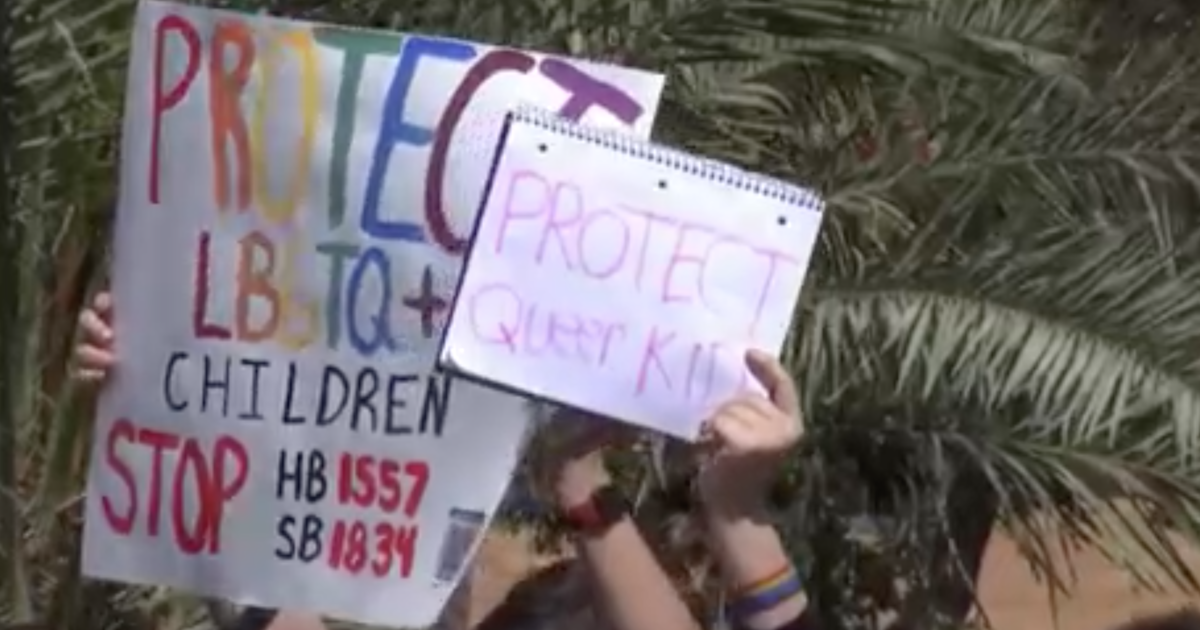TALLAHASSEE – A federal choose has rejected – at least for now – a lawsuit complicated a controversial new regulation that restricts instruction on gender identity and sexual orientation in public universities.
U.S. District Choose Allen Winsor on Thursday issued a 25-website page buy dismissing the case, obtaining that plaintiffs did not demonstrate they had lawful standing. Winsor, however, reported the plaintiffs can file a revised lawsuit as they seek out to block the limitations.
The regulation, permitted this calendar year by the Republican-managed Legislature and Gov. Ron DeSantis, stops instruction on gender id and sexual orientation in kindergarten through third quality and requires that such instruction be “age-correct … in accordance with condition tutorial specifications” in older grades.
It has drawn nationwide focus and led to at least a single other lawsuit. Republican lawmakers titled the measure (HB 1557) the “Parental Rights in Education” monthly bill. Opponents labeled it the “Will not Say Homosexual” bill.
The LGBTQ-advocacy teams Equality Florida and Spouse and children Equality, students, parents and instructors submitted the lawsuit in March and an amended version in May possibly. The lawsuit alleged, in aspect, that the regulation violated Initial Amendment and thanks-course of action rights.
In his order, Winsor did not rule on the constitutionality of the law. He targeted on a threshold concern of irrespective of whether the plaintiffs confirmed they experienced standing to go after the circumstance – and concluded that they experienced not achieved that requirement.
As an illustration, Winsor wrote that one factor in pinpointing standing is regardless of whether a plaintiff can exhibit a link among a “defendant’s action and the resulting damage.”
“The principal issue is that most of plaintiffs’ alleged harm is not plausibly tied to the law’s enforcement so much as the law’s pretty existence,” Winsor, who was appointed to the federal bench by previous President Donald Trump, wrote. “Plaintiffs contend the law’s passage, the sentiment behind it, the legislators’ drive, and the concept the legislation conveys all result in them hurt. But no injunction can unwind any of that.”
As a different instance, he reported violations of the legislation would be enforced versus university districts, not person academics.
“With or without having the regulation, college districts direct teachers as to what they could and may not teach,” the decide wrote. “Plaintiffs do not allege otherwise they do not assert, for illustration, that Florida’s community-university instructors might train no matter what lessons they wish. So to the extent plaintiffs allege that some lecturers or other folks want to present ‘classroom instruction . . . on sexual orientation or gender identity’ to learners ‘in kindergarten by way of quality 3,’ they would have to exhibit (at a least) that with no the legislation their person school district would make it possible for it. But plaintiffs provide no certain allegation that any teacher would be supplying these kinds of classroom instruction absent HB 1577.”
Winsor gave the plaintiffs 14 days to file a revised lawsuit.
In the Could amended grievance, the plaintiffs’ lawyers alleged that the evaluate is unconstitutional, discriminatory and “plainly the products of animus toward Florida’s LGBTQ local community.” The lawsuit named as defendants DeSantis, the Point out Board of Education and learning, the Florida Division of Training, Education and learning Commissioner Manny Diaz Jr. and 7 county faculty boards.
“HB 1557 piles just one (constitutional) violation on best of one more,” the lawsuit reported. “It offends concepts of cost-free speech and equivalent security by looking for to censor discussions of sexual orientation or gender identity that acknowledge and respect LGBTQ people today and their families. It offends owing method by applying broad and vague conditions to define its prohibitions – thus inviting discriminatory enforcement and magnifying its chilling impact on speech. And it occurs from discriminatory purposes and out-of-date sexual intercourse-primarily based stereotypes that offend deeply rooted constitutional and statutory requirements.”
In a June motion to dismiss the scenario, the state’s legal professionals argued that the plaintiffs did not have standing. But they also wrote that the plaintiffs “have not occur close to showing that the Legislature acted out of animus towards LGBTQ people today.”
“The monthly bill displays no governmental choice about what college students must find out about sexual orientation and gender id,” the state’s legal professionals wrote. “Those topics will have to be taught appropriately and, for the youngest kids, they could be taught by dad and mom, not in community-university classroom settings. That is a legit (state) desire.”



